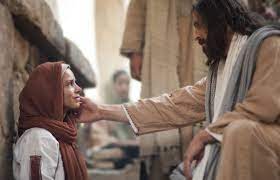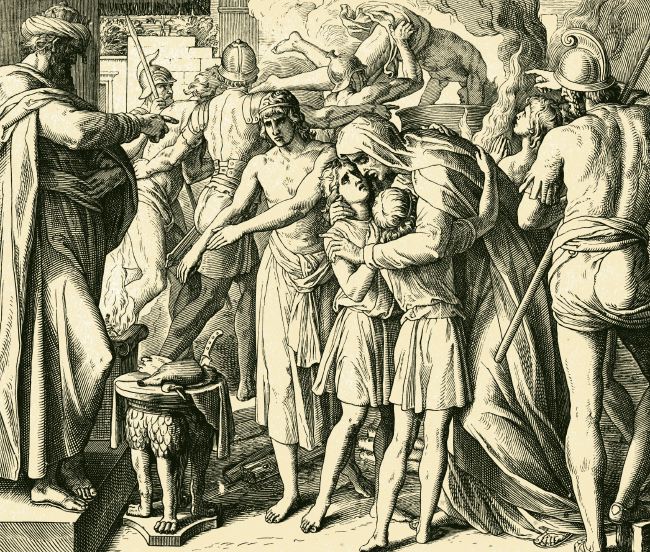Looking at life unfolding from day to day, some people would say:
“Daily life is a ‘mixed bag’.”
They think of their experience day after day –
good things and bad things are part of what happens to them.
Joyful events and happy encounters are surely enjoyable.
But problems and difficulties are not.
Struggling with misfortune and coping with accidents, this is painful.
And sickness is part of what we see as painful situations in our lives.
When we are suffering physically or mentally, or both, we feel we are not ourselves.
We long to be healed from the pain and hurt.
We want to be freed from worry, anxiety, and all such negative feelings.

 At such times, some of us may envy the people who lived in Jesus’ time.
At such times, some of us may envy the people who lived in Jesus’ time.
The text of today’s gospel reading outlines clearly what we would hope for (Mark 1:29-39):
“That evening after sunset the people brought to Jesus
all the sick and those possessed by demons.
The whole town gathered at the door,
and Jesus healed many who had various diseases.
He also drove out many demons”
Sickness and possession suddenly taken away – was it not something wonderful?
People suffering and tormented are now free from their misery.
And we think: What about us?
We can no longer reach Jesus in a certain place and ask him to heal whatever affliction we suffer from.
Yet, healing is often provided through the medication available nowadays.
Medical science, the knowledge and expertise of specialists can often cure many diseases.
God can make use of these to heal us.
You say: “Often, yes, but not always”.
It is true.
On this earth, we cannot enjoy permanent health and… immortality.
Our human condition does not allow for everlasting enjoyment of a healthy life.
We must live… waiting for… the ‘other life’ – the eternal one…
One day I read a text from a spiritual writer asking this question:
“What kind of a God do we want to believe in –
a God who can cure our diseases once?
Or, a God who lives with us through all that we have to suffer from?”
I ask myself this question from time to time?…
Note: Another text is available on a different theme, in French, at: https://image-i-nations.com/5e-dimanche-de-lannee-b-2024/
Source: Images: The Church of Jesus Christ of Latter-Day Saints
 This 4th Easter Sunday is known as Good Shepherd Sunday as it focuses on Jesus, the Risen Lord, as our Shepherd.
This 4th Easter Sunday is known as Good Shepherd Sunday as it focuses on Jesus, the Risen Lord, as our Shepherd. Just imagine for a moment a man standing before a group of people.
Just imagine for a moment a man standing before a group of people. This is more or less a reproduction of what the scene in today’s gospel offers us (Jn.6:41-51).
This is more or less a reproduction of what the scene in today’s gospel offers us (Jn.6:41-51). A fertile imagination can place before us wonderful situations that we could only dream of.
A fertile imagination can place before us wonderful situations that we could only dream of. ”I promise you, I will…” A promise – we may be the one speaking the words. Or, someone else may be assuring us that he will do something for us, she will carry out something on our behalf. If the person speaking is trustworthy, we can hope that we will get what is promised. If he or she is reliable, we may expect that we will obtain whatever we have been told would be done or given.
”I promise you, I will…” A promise – we may be the one speaking the words. Or, someone else may be assuring us that he will do something for us, she will carry out something on our behalf. If the person speaking is trustworthy, we can hope that we will get what is promised. If he or she is reliable, we may expect that we will obtain whatever we have been told would be done or given.